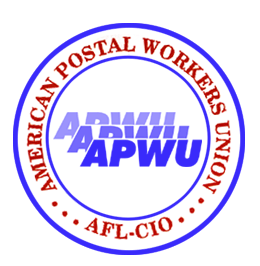THE BULLETIN BOARD
October 2009
Congress Approves FERS Sick-Leave Credit
APWU Web News Article #130-09
At long last! After a protracted campaign, postal and federal workers who retire under the Federal Employees Retirement System (FERS) will receive credit for sick leave when they retire. The new benefit was included among a number of pay and retirement provisions in a compromise version of the 2010 Defense Authorization bill, which the Senate approved 68-29 on Oct. 22.
The bill was approved in a House-Senate conference on Oct. 7, and the House adopted the measure the following day. The legislation will now be sent to President Obama, who is expected to sign it into law.
The bill includes a provision long-sought by the APWU and other organizations representing federal employees, which would allow FERS-covered workers to receive a 50 percent credit for unused sick leave until Dec. 31, 2013. Starting on Jan. 1, 2014, they would receive full credit. Employees covered by the Civil Service Retirement System (CSRS) already receive credit for sick leave when they retire.
Read the entire article online at the APWU website.
2009 Penalty Overtime Exclusion Period Set
The December period referenced in Article 8, Sections 4 and 5, of the National Agreement, during which penalty overtime regulations are not applicable, consists of four consecutive service weeks.
This year the period begins Pay Period 26-09, Week 1 (Dec. 5, 2009) and ends Pay Period 1-10, Week 2 (Jan. 1, 2010).
Pay Raise Set for November 21
excerpted from APWU Web News Article #127-09
APWU-represented postal workers will receive a 1.2 percent increase in annual salaries effective Nov. 21, based on the grades and levels in effect on Sept. 6, 2006. The raise will be reflected in paychecks issued Dec. 11, and apply to employees covered by the APWU-USPS 2006-2010 Collective Bargaining Agreement and the 2006-2010 Operating Services Agreement.
In accordance with Article 16, Section 2, of the APWU National Constitution and Bylaws, the raise will result in an automatic dues increase of 62 cents per member per pay period for career employees, and an increase of 40 cents per member per pay period for transitional employees.
Thirty-nine cents of the 62-cent increase will go to the career employees' locals, and 23 cents will go to the national union, including the union's private-sector organizing fund. Of the 40-cent increase from transitional employees, 25 cents will go to their locals, and 15 cents will go to national union, including the organizing fund.
President Signs Postal Reprieve Bill
excerpted from eNAPUS Legislative & Political Bulletin
On Wednesday night, President Obama signed into law the Fiscal Year 2010 Legislative Branch Appropriations Bill (HR 2918), which includes a provision deferring $4 billion in Postal Service contributions to pre-fund postal retiree health premiums.
Without the legislation, the USPS would have had to remit to the Postal Retirees Health Benefits Trust Fund $5.4 billion in Fiscal Year 2009, which ended at the stroke of midnight, Thursday morning. Consequently, the USPS was required to make only a $1.4 billion payment.
Hours before the President signed the measure, the Senate narrowly defeated two procedural motions that would have killed the postal provision. After dispensing with the procedural votes, the Senate passed HR 2918.
Although temporary postal relief legislation has been enacted, it is possible that S. 1507, the Senate Postal Relief legislation, which the Senate Homeland Security and Governmental Affairs Committee favorably reported earlier this year, could be considered by the Senate. S. 1507 was drafted to provide eight years of postal relief, but it also includes a controversial provision that can impact collective-bargaining.
In addition, if the legislation moves to the floor it could be subject to anti-USPS and anti-Postal employee amendments. Inasmuch as the current Congressional session may extend into December, there is still time for S. 1507 to be taken up by the Senate — so stay tuned.
Burrus to Retire at End of Term
excerpted from APWU Web News Article #121-09
In an emotional closing to his speech at the union's All-Craft Conference Sept. 30, APWU President William Burrus announced that he would not seek re-election in November 2010, ending a 53-year career in which he fought for better wages, benefits and dignity and respect on the job for hundreds of thousands of postal workers.
"I have looked forward to every day that I have served our members, and I look forward to the next 13 months. This is not the end, but effective November 2010 it will be time for me to turn the page and move on to the rest of my life."
The end of Burrus' term will coincide with the conclusion of negotiations for a new collective bargaining agreement; the current contract expires Nov. 20, 2010.
Read the full article at the APWU website.
3 Cities Get Paperless Postal Service
excerpted from mmn.com, article by Karl Burkhart
San Francisco, Newark and New York sign on to Zumbox to provide paperless municipal mail.
Municipal mail accounts for a staggering amount of postal transactions. In New York City alone, 15 million pieces of mail from the City are sent out on a typical day. So Zumbox targeted the mayors of some of the biggest cities in the U.S. — San Francisco, New York and Newark — and invited them to become the premiere partners of the paperless service.
Now all 3 cities have signed on and are sending correspondence to city residents via Zumbox. Hopefully the strategy will pay off as people realize how easy the software is to use and how much fuel and trees can be saved in the process.
USPS Steps Up Mail-Processing Consolidation
excerpted from Dead Tree Edition online blog
The U.S. Postal Service has announced the possible closing or downsizing of 15 processing and distribution centers in the past two weeks, part of a newly aggressive effort to rationalize its mail-processing network.
While proposed post-office closings get most of the media attention, 32 of the much larger processing and distribution centers are the subject of Area Mail Processing studies (AMPS) that could result in some or all of their work going to other P&DCs. USPS has approved at least partial consolidation of 11 other P&DCs this quarter, as shown by its AMPS Web site. The site links to reports detailing the proposed and recently approved consolidations.
Declining mail volume and increased automation have left the Postal Service with far more mail-processing capacity and locations than it needs.
The consolidations typically move work to larger P&DCs that are 20 to 80 miles away. Temporary employees lose their jobs, while career employees must often make the longer commute to the larger P&DC to remain employed by the Postal Service.
The USPS Office of Inspector General just released a report defending one of the challenged consolidations, a shift of outgoing mail processing from Canton, Ohio to Akron. Counter to claims from opponents of consolidation, the study found that service improved and that USPS expenses were reduced by more than $2.2 million annually.
To read the full article and view a list of P&DCs being considered for consolidation, visit DeadTreeEdition online.
Past Issues of the Bulletin Board
[September 2009]
[August 2009] [July 2009]
Use our Search function to look up further back-issues of the Bulletin Board.

